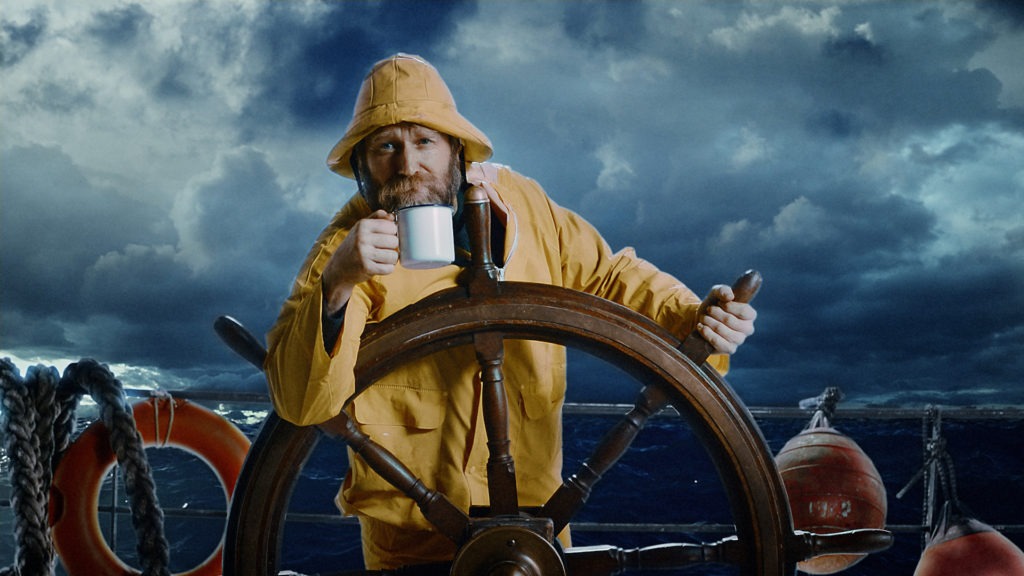
How many hours does it really take to make a friend?
A NEW study of more than 2,000 people reveals Brits require 34 hours of commitment (2,040 minutes) to transition a new acquaintance into a friend. What’s more, each interaction needs to last on average 3 hours and 4 minutes to be mutually beneficial – far longer than your average cup of tea! In fact, it’s about the same time you could watch The Godfather, cook a 14 lb turkey or take a train from London to Paris.
The study, commissioned by Fisherman’s Friend to celebrate the start of the latest round of its ‘Whatever the day throws at you’ marketing campaign, was analysed by British Anthropologist Robin Dunbar – famed for formulating Dunbar’s number, a theory revealing we can only hold 150 connections at once. And, together, they found that, set within the 150 meaningful relationships we typically have at one time, the average Brit currently has only five close “shoulders-to-cry-on” friends.
Indeed, it also seems we’re all on the lookout to increase our number of true friends, with two thirds of the nation admitting they are actively looking to add to their inner circle, and almost two thirds (58%) claiming they need a good number of friends to feel content.
So, what is the ultimate formula for finding true friendship? According to Fisherman’s Friend’s study, a total of 11 interactions are required to transition from acquaintances into friendship, with the average friendship taking 5.5 months to turn into something solid.
It also seems we already have a particular set of qualities in mind when seeking new friends, with a sense of humour an essential ingredient in a new friend for six out of 10 Brits (61%), holding similar values important for almost half (44%), and sharing similar interests in activities essential for one in four (26%). Being trustworthy (25%) and reliable (23%) were also pulled out as important characteristics.
And when it comes to the most important factor that distinguishes a best friend from a good friend, being there for each other in the hard times came out as number one (17%), with always having your back (13%) and accepting you at your worst (10%) coming in close behind.
Given the time we dedicate to friendship, it’s also no surprise that Brits have high expectations if they’re wanting to take their new friendships seriously. The characteristics in friends that we won’t stand for include lying (29%), spilling your deepest secrets (25%) and never being there when they’re needed (25%).
It also seems Brits are loyal friends, with our longest lasting friendships enduring an average of 29 years so far – with hopefully many more years of friendship to come.
However, the number of friendships that stay the course is very small, with most friendships lasting just a couple of years or so and only a handful surviving a long time – and only then if both parties make the effort to keep a friendship going. And for the committed among us, the very best friendships focus on the values of celebrating each other’s successes, respect and lifting each other up when you’re down.
Robin Dunbar, BA PhD DSc (Hons), Emeritus Professor of Evolutionary Psychology at the University of Oxford, explained:
“Friendships are the single most important factor influencing both our psychological and our physical health and wellbeing. Fisherman’s Friend’s study shows how two thirds of us have a best friend who provides those moments of emotional support and advice when we need it most. This makes finding friends and maintaining friendships all the more important. We make big efforts to find friends, and a substantial majority of us – 83% to be precise – consider ourselves to be a good friend, so it’s not surprising that we’re pretty exacting when it comes to what we expect from others if we consider them to be a true friend.”
Commenting on the lastest findings from the brand’s annual study, Fisherman’s Friend Regional Business Manager, Jon R. White, says:
“We all know how easy it is to get down in the dumps and when we’re not feeling 100% is when we need our friends the most especially as we move into the shorter, colder days of winter. So, as part of our annual look at what makes the nation tick, we have been excited to this year work with Robin to explore the subject of friendship.
“As a brand, we literally got our name for being the fisherman’s best friend on the high seas, particularly during cold and flu season, so we were excited to work with Robin to explore the idea of friendship. For, as we all know, it’s always easier to cope with whatever the day throws at you with good friends by your side.”
An online survey was conducted by Walr among 2,001 nationally representative adults aged 18+ in the UK. The research fieldwork took place between September 12-14, 2022. Walr is a member organisation of the Market Research Society and abides by all codes of practise.
Robin Dunbar BA PhD DSc (Hons) is a British anthropologist and evolutionary psychologist and a specialist in primate and human behaviour. He is an emeritus professor in the Department of Experimental Psychology at the University of Oxford. He is best known for formulating Dunbar’s number, the limit to the number of individuals with whom any one person can maintain stable relationships.

Navigating the fast-paced media landscape requires a dedication to innovation and a deep grasp of industry trends. At the heart of this transformation is Artificial Intelligence (AI), a total game-changer reshaping how we handle tasks and workflows. If the thought of this new ‘co-worker’ freaks you out as much as… Read more

We’ve delved into the minds of some of the biggest brand innovators around to uncover their secrets of success and inspiration. Brands aren’t just threads in life’s fabric; they’re engines of inspiration. Behind these brands are some of the world’s most influential leaders, driving change and innovation. That’s why we’ve… Read more

It’s no secret that we’re currently living through the age of social media, where platforms such as TikTok have become more than just entertainment hubs with viral dances and comedic skits — but now a powerful marketing influence that’s totally shaping consumer behaviours and trends, particularly in world of grocery… Read more